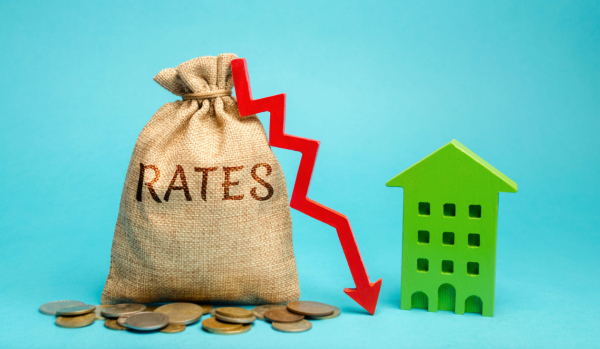You’ve graduated and found a good job that pays a decent salary; you’re paying for all your monthly commitments on time, while still having enough for entertainment AND savings.
And so, you decide to make the leap into home ownership, and sign on for what may be the biggest financial commitment you’ll ever take: the mortgage!
While you may think that your income is enough to cover the monthly repayments and still have enough for other necessary expenses, did you ever stop to consider what would happen, in the event that our country’s economy suddenly changes (for better or for worse)?
We’re about to dive into that, so read on to find out if you’re really as financially stable as you thought, especially during uncertain times as these!
What Were Some Of The Recent Changes In The Economy?
With the COVID-19 pandemic causing global mass panic, and the local Movement Control Order (MCO) taking place since 18th March 2020, the Malaysian government had to step in with a number of measures to ensure the economy didn’t go under.
First off, we saw the Overnight Policy Rate (OPR) getting reduced not once, but THREE times in 2020 alone:
- 22nd January 2020 — OPR rate cut by 25bps to 2.75%
- 3rd March 2020 — OPR rate cut by 25bps to 2.50%
- 5th May 2020 — OPR rate cut by 50bps to 2.00% (the lowest since 2009/2010)
Next, Bank Negara Malaysia (BNM) announced that it would be having a 6-month moratorium on all loan/financing payment obligation, beginning from 1st April. This involved both the principal amount and the interest/profit.
Finally, the government then decided to revise the mandatory contribution rate (from 11% to 7%) for the Employees Provident Fund (EPF), which would be in place till December 2020.
The Economy Is Highly Likely To Be Facing A Deflation
So, with all those measures in place, what would it mean for Malaysia? Theoretically, under normal circumstances, an inflation would be well on its way.
This is because with less money in the bank and more spending power for the people, the economy would face a significant boost.
But these aren’t normal times we’re facing – this is, in fact, the most unprecedented situation we’re dealing with! With the MCO still in place and extended twice already, the people’s spending power is actually highly restricted.
BNM has a similar view; they predict that for 2020, the country’s GDP (Gross Domestic Product) growth will actually be a contraction, somewhere in the range of -2% to 0.5%.
Apart from the MCO, another factor that will contribute to this situation is the decline in output across all sectors (except for services), as a result of the COVID-19 pandemic. But, why is this so?
Well, when there’s less output, it essentially means less productivity. With such a decline in people’s daily activities, there’s not going to be enough money. That’s when the economy is impacted negatively.
Disruptions to the commodity supply, both domestically and internationally, is also one other major factor that’ll play a part in the bleak performance of our real GDP.
PropertyGuru Tip
Commodity are mostly raw materials, and can be generally categorised into hard and soft commodities. The former generally refers to natural resources which need to be mined/extracted such as gold, silver, and oil. The latter are agricultural products or livestock, like corn, rice, and beef.
Smita Kuriakose, who is the World Bank’s Senior Economist, has said that "…global trade had declined on par with the most acute phase of the global financial crisis in 2008/2009."
With Malaysia being one of the economies highest connected to global supply chains, this severe shock stemming from COVID-19 will likely have a very large impact on Malaysia’s economy.
If that wasn’t a doom-and-gloom picture enough, the Malaysian Institute of Economic Research (MIER) issued a press statement on 24th March 2020, predicting that the number of job losses could be an estimated 2.4 million, of which unskilled workers make up 67% of the total.
With all things considered, it’s no surprise then that the projected household income will decline by 12%, and a drop in consumer spending by 11%. Yes, Malaysia is most likely going to be faced with a deflated economy.
What If The Economy Was Facing An Inflation Instead?
Now, if we were to just pretend that the waking nightmare called “COVID-19” never existed, our economy would thus face an inflation, what with all the extra cold hard cash that’s in the pockets and bank accounts of our people!
Did you know that BNM made a move to reduce the Statutory Reserve Requirement (SRR) Ratio by 100 basis points; from 3% to 2%, effective 20th March?
As the SRR is an instrument that’s used to manage the liquidity of the country, this move is expected to release roughly RM30bil worth of funds into the banking system.
Generally, when this is lowered, it allows financial institutions to have more money to lend out, and they can earn an interest on these.
Imagine the amount of spending (shopping sprees, here we come) that would take place; with such a massive surge in consumer demand for goods and services, you can bet on prices rising rapidly to keep up!
This sort of scenario can also be thought of as “a reduction in the value of the currency”, because people are now able to purchase less than they previously could, with the same amount of Ringgit.
In severe cases, hyperinflation will take place, and this is where things get ugly, FAST. It can be defined as out-of-control and rapid price increases, typically measuring at 50% or more per month.

Fun fact: The worst case of hyperinflation ever witnessed in history was in Hungary in 1946, after World War 2.
At its peak, the country saw prices doubling every 15 hours, and the largest banknote denomination was 100 QUINTILLION (in case you were wondering, that’s 18 zeroes).
No Matter If The Economy Experiences A Deflation Or Inflation, Remember…
…that the type of home loan you signed up for is what’s REALLY important here! You see, there are 2 commonly found types in the market: the fixed rate and floating rate. And here’s where the heart of the matter lies.
1) Fixed-rate home loan
As its name suggests, the interest rate on your home loan won’t change (i.e. remains constant), from the moment you sign on the dotted line. Doesn’t matter if the world decides to implode one day, the figures will remain the same.
If the economy experiences a deflation, and interest rates drop, you’re going to be on the losing end. That’s because if you signed on for a home loan that comes with 4% per annum, can you imagine how much you’d still be paying if the interest rate was halved to 2%?
Now, if it’s an inflation, that’s where you’ll be breathing a sigh of relief. Even if the interest rates climb sky-high, yours will never change and there’s nothing your financial institution can do about it!
2) Floating rate home loan
This type is where the interest rate moves up and down (i.e. varies over the duration of the loan) with the rest of the market, as it’s based on a reference rate such as the BR/BLR (Base Rate/Base Lending Rate) or the OPR.
When it comes to a deflated economy, the interest rate will be going down ever so slowly and steadily (during the COVID-19 and MCO, for example).
The total amount you owe to the financial institution will also be reduced, so that’s going to be one very unhappy bank of yours.
However, should inflation ever roll around, you’re going to have a problem on your hands if you aren’t financially ready for it. You see, your interest rate will soar too, and thus so will your monthly instalments.
Finding the right home loan for you can be simple and straightforward enough, but are you aware of the 4 most common reasons as to why many Malaysians face a home loan rejection?
Disclaimer: The information is provided for general information only. PropertyGuru International (Malaysia) Sdn Bhd makes no representations or warranties in relation to the information, including but not limited to any representation or warranty as to the fitness for any particular purpose of the information to the fullest extent permitted by law. While every effort has been made to ensure that the information provided in this article is accurate, reliable, and complete as of the time of writing, the information provided in this article should not be relied upon to make any financial, investment, real estate or legal decisions. Additionally, the information should not substitute advice from a trained professional who can take into account your personal facts and circumstances, and we accept no liability if you use the information to form decisions.






